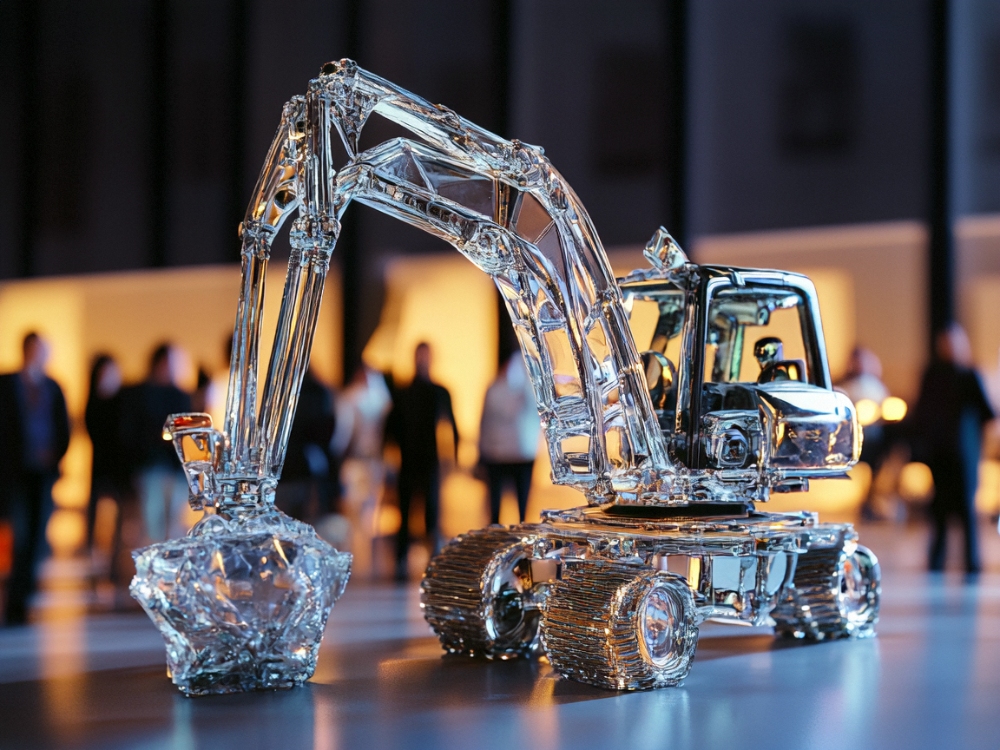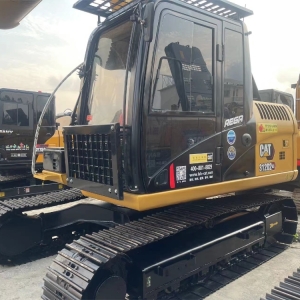Financing and Insurance for Used Excavators: 3 Key Considerations You Must Not Overlook
上海华诚二手挖掘机市场 / 2024-10-01When purchasing a used excavator, buyers often focus solely on the machine's performance, price, and model, while neglecting the importance of financing and insurance. However, the right financing and insurance arrangements can not only ease your financial burden but also mitigate potential risks in the future. Therefore, understanding these aspects is crucial for a successful purchase. This article may not apply to all countries, as financing and insurance often require additional costs, and some countries may not offer such services for used excavators or may only provide limited coverage. You should consult local insurance providers for details. If you are very familiar with excavators, some types of insurance might be unnecessary for you.

1. Financing for Used Excavators: How to Choose the Right Plan
For individual buyers and many small- to medium-sized businesses, buying one or more used excavators outright can place a significant strain on finances. A suitable financing plan can help alleviate this burden while maintaining healthy cash flow. Here are a few key factors to consider when choosing financing for a used excavator:
1.1 Type of Financing: Loan or Lease?
When financing a used excavator, buyers generally have two options: a loan or a lease.
Loan: This traditional financing method allows you to apply for a loan from a bank or financial institution to purchase the used excavator. Once the loan is approved, the equipment becomes your asset, but you are responsible for repaying the loan, including principal and interest, in regular installments. Loans are ideal for businesses planning to use the equipment long-term since the excavator will belong to the company after the loan term is complete.
Lease: Leasing offers a more flexible option, especially for buyers unsure of their long-term need for the equipment. Through a lease, you only pay for the use of the equipment over a specified period rather than owning it immediately. This reduces the initial cash outlay, but long-term leasing costs may exceed the cost of outright purchasing.
1.2 Interest Rates and Terms
Interest rates are a crucial consideration when selecting a financing plan. For loans, lower interest rates can help save on interest payments over time. It is worth comparing rates from various banks or financial institutions to find the most competitive offer. Additionally, the flexibility of loan terms is important—such as whether early repayment is allowed and the length of the repayment period. These factors can directly impact your financial planning.
1.3 Down Payment and Monthly Installments
When purchasing a used excavator with a loan, financial institutions typically require a down payment, which may range from 10% to 30% of the equipment's price, depending on the loan terms. A higher down payment can reduce your monthly payments, but it also ties up more of your initial capital. Buyers should carefully plan according to their cash flow.

2. Insurance for Used Excavators: Essential Protection Against Risks
Although used excavators are generally less expensive, they still represent a significant investment. On construction sites, excavators face various risks, including equipment failure, accidental damage, natural disasters, or even theft. Appropriate insurance can provide financial protection and prevent unnecessary economic loss.
2.1 Equipment Damage Insurance
Equipment damage is a common risk in the construction industry, especially with used machines, which may be more prone to breakdowns. Equipment damage insurance (also known as comprehensive equipment insurance) covers repair costs due to accidents, natural disasters, and other unforeseen circumstances. This insurance ensures you won't have to bear hefty repair expenses, helping to keep projects running smoothly.
2.2 Third-Party Liability Insurance
Construction sites are prone to accidents, particularly when excavators are operated incorrectly or in complex environments. These accidents can damage other equipment, property, or even injure people. Third-party liability insurance provides compensation for such incidents, protecting your company from the financial burden of legal claims. This insurance is a vital measure to ensure the safety and legal compliance of your operations.
2.3 Equipment Theft Insurance
Used excavators are especially vulnerable to theft since they are often stored in open job sites or locations that are not fully secure. Equipment theft insurance compensates for the loss in case of theft, preventing disruptions to production and financial losses. This insurance is often purchased together with equipment damage insurance for more comprehensive coverage.
2.4 Premiums and Coverage
When purchasing insurance, the premium and coverage are two essential factors to balance. The premium amount depends on the value of the equipment, the insurance company’s risk assessment, and the work environment. Buyers should thoroughly review the policy details to understand what is covered and any exclusions to ensure the insurance adequately covers actual risks.

3. Comprehensive Consideration of Financing and Insurance for Informed Decision-Making
When deciding how to finance and insure your used excavator, there are a few critical points to keep in mind:
3.1 Comprehensive Cost Evaluation
When selecting a financing option, consider not only the purchase price of the equipment but also loan interest, down payment, monthly payments, and insurance costs. Ensure that the financing and insurance arrangements do not place excessive strain on your company’s cash flow.
3.2 Long-Term Needs and Equipment Usage
If you plan to use the excavator for an extended period, a loan may be a more cost-effective choice. However, if your project has a shorter duration or the equipment won’t be used frequently, leasing combined with insurance might offer greater flexibility.
3.3 Appropriate Insurance Coverage
When choosing insurance, ensure that all potential risks are covered, particularly in the areas of equipment damage, theft, and third-party liability. Based on the work environment and usage frequency, you can select different combinations of insurance policies to guarantee the safety of both the equipment and the project.

4. Conclusion
Purchasing a used excavator involves more than just acquiring equipment—it also requires careful consideration of financing and insurance. With the right financing, you can ease your financial burden, and proper insurance ensures the safety and reliability of the equipment during use. Before making a final decision, it’s advisable to consult with financial and insurance professionals to ensure your financing and insurance plans align with your company’s long-term goals. This will not only help you acquire the right equipment but also provide greater security and flexibility for your business’s future operations.













